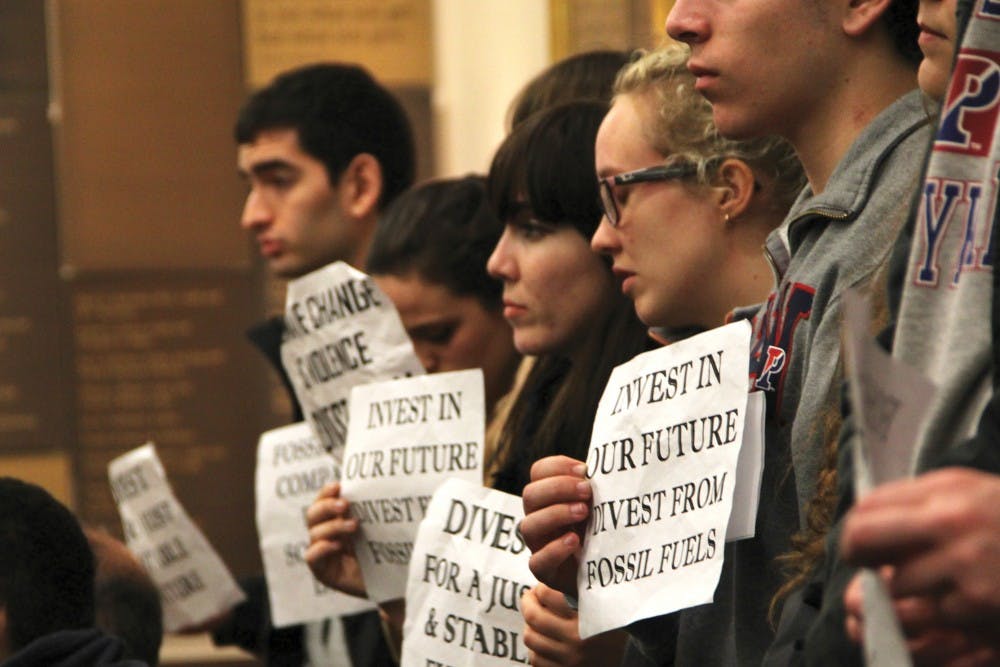
During the first week and a half of 1968 Wharton graduate Donald Trump’s presidency, Trump used an executive action to give the go-ahead to pipeline projects, ordered climate-related agencies, including the Environmental Protection Agency, to stop speaking to the public and the media and posted a plan to kill former President Obama’s climate action plan to the White House website.
From these actions, to his appointment of human-caused climate change skeptics to his Cabinet nominees, to his 2012 tweet defining climate change as a Chinese hoax, climate science has proven a contentious issue for Trump.
This has left Americans wondering what form environmental and climate change policy will continue to take under the Trump administration.
”Trump is not someone who has really expressed belief in the science of climate change,” Political Science Department graduate chair and professor Matthew Levendusky said. “In that sense, he’s consistent with many of the Republican elites who have called this into question.”
Marc Meredith, a professor and chair of Penn’s Political Science Department, said that Trump’s policies will likely differ vastly from those of the Obama administration.
“He very clearly signaled during the campaign that he did not think climate change should be a priority,” Meredith said.
“I think every sign since [his] becoming president suggests that he’s going to govern consistently with his campaign rhetoric. His choice for the EPA, his choice for secretary of state [and] his executive orders that are coming out all point towards an administration that is going to put a lot less emphasis on climate change than the Obama administration.”
In stark contrast to his predecessor’s policy, Trump signed orders last week supporting progress on the heavily protested Keystone XL and Dakota Access oil pipelines.
Meredith said the decision likely stemmed from Trump’s business-oriented approach to the presidency, “and also the symbolic nature of how high-profile this issue has become,” adding, “It certainly has some relationship to climate change but also to other policy domains... clearly this was an issue where it’s in some ways minority rights framed.”
Environmental scientist and assistant professor in Penn’s Department of Earth and Environmental Science Irina Marinov opposed Trump’s climate-related actions.
“Just listing the things that have been passed, or that they’ve worked on, in the past couple days is pretty disturbing,” Marinov said.
She disagreed fervently with many statements and assessments in Trump’s America First Energy Plan and warned that this plan might not have the effects on the job market advertised by Trump.
“Coal jobs were never going to come back,” Marinov said flatly.
The plan, on the White House website, says “President Trump is committed to eliminating harmful and unnecessary policies such as the Climate Action Plan and the Waters of the U.S. rule. Lifting these restrictions will greatly help American workers, increasing wages by more than $30 billion over the next seven years.”
Marinov disagreed heavily with Trump’s description of Obama’s policies as harmful and unnecessary and questioned the accuracy of the Trump plan’s production assessments.
She noted that while Trump’s plan might not encourage investment in renewable energy research, the energy industry will gravitate toward green technologies as it looks to the future.
“The energy sector on its own is going to push towards renewables,” she said, adding that Trump’s policy may actually hurt the sector, as much of the industry aims to move away from fossil fuels. “The renewable sector is a growing, booming field that is going to provide a lot of wages and a lot of jobs. I would argue that this is a completely incoherent argument that doesn’t take into account simple facts.”
Levendusky also emphasized the private sector’s role in environmental advances.
“I think one of the interesting things with climate change is obviously there’s a role for government policy, but many companies are also realizing that this is something they have to address,” he said. “So part of the solution may come from outside of government forces — not to say that government won’t play an important role”
The Daily Pennsylvanian is an independent, student-run newspaper. Please consider making a donation to support the coverage that shapes the University. Your generosity ensures a future of strong journalism at Penn.
Donate




